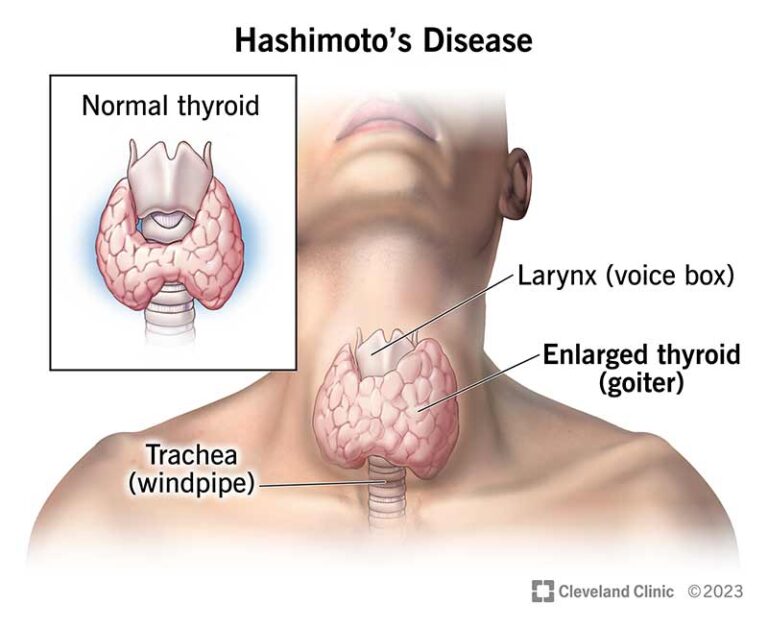Emerging Research And Innovations In Thyroiditis Treatment
Thyroiditis, a condition characterized by inflammation of the thyroid gland, presents a complex array of challenges for patients and clinicians alike. From Hashimoto’s thyroiditis to subacute thyroiditis and beyond, the management of thyroiditis often involves a combination of medication, lifestyle modifications, and sometimes surgery. However, emerging research and innovations in thyroiditis treatment offer new hope for improved outcomes, symptom management, and potentially even disease prevention. In this article, we explore some of the latest advancements in the field of thyroiditis treatment and their potential impact on patient care.
Precision Medicine and Personalized Treatment Approaches
One of the most significant trends in modern medicine is the shift towards precision medicine, which emphasizes tailored treatment strategies based on an individual’s unique genetic makeup, environment, and lifestyle factors. In the context of thyroiditis, precision medicine holds promise for identifying biomarkers that can predict disease progression, treatment response, and risk of complications. By leveraging genomic data and advanced analytics, researchers are gaining insights into the underlying molecular mechanisms of thyroiditis, paving the way for more targeted and effective interventions.
Immunomodulatory Therapies
Given the autoimmune nature of many forms of thyroiditis, immunomodulatory therapies have emerged as a promising avenue for treatment. These therapies aim to modulate the immune response and reduce inflammation in the thyroid gland, thereby alleviating symptoms and preventing disease progression. Biologic agents targeting specific immune pathways, such as cytokines and T-cell activation, show potential for controlling autoimmune thyroiditis while minimizing systemic side effects. Clinical trials evaluating the efficacy and safety of these novel immunomodulatory agents are currently underway, offering hope for more targeted and personalized treatment options in the near future.
Biologic Therapies Targeting Thyroid Hormone Receptors
Another area of active research in thyroiditis treatment involves the development of biological therapies that target thyroid hormone receptors. These novel agents aim to modulate thyroid hormone signaling pathways, thereby restoring hormone balance and reducing inflammation in the thyroid gland. By directly targeting the underlying pathophysiology of thyroiditis, these biological therapies hold promise for achieving disease remission and preventing relapse in patients with autoimmune thyroiditis. Early clinical trials have shown encouraging results, suggesting that biological therapies targeting thyroid hormone receptors may represent a paradigm shift in the management of thyroiditis.
Novel Drug Delivery Systems
In addition to developing new therapeutic agents, researchers are also exploring innovative drug delivery systems to enhance the efficacy and safety of thyroiditis treatment. For example, nanoparticle-based drug delivery systems can improve the bioavailability and tissue specificity of therapeutic agents, allowing for targeted delivery to the thyroid gland while minimizing off-target effects. Similarly, implantable devices and sustained-release formulations offer the potential for long-term, controlled delivery of medication, reducing the need for frequent dosing and improving patient adherence. By harnessing the power of nanotechnology and advanced materials science, these novel drug delivery systems have the potential to revolutionize the way thyroiditis is treated.
Integrative Approaches to Thyroiditis Management
In recent years, there has been growing interest in integrative approaches to thyroiditis management, combining conventional medical treatments with complementary and alternative therapies. Modalities such as acupuncture, yoga, and herbal supplements have been studied for their potential role in reducing inflammation, modulating the immune system, and alleviating symptoms associated with thyroiditis. While more research is needed to establish the efficacy and safety of these integrative interventions, preliminary evidence suggests that they may offer additional benefits when used in conjunction with standard medical care.
Conclusion
In conclusion, emerging research and innovations in thyroiditis treatment hold promise for improving outcomes and quality of life for patients affected by this challenging condition. From precision medicine and immunomodulatory therapies to novel drug delivery systems and integrative approaches, the landscape of thyroiditis treatment is evolving rapidly, driven by advances in science, technology, and clinical practice. By continuing to invest in research and collaboration, we can unlock new insights into the underlying mechanisms of thyroiditis and develop more effective, personalized treatments for patients worldwide.








